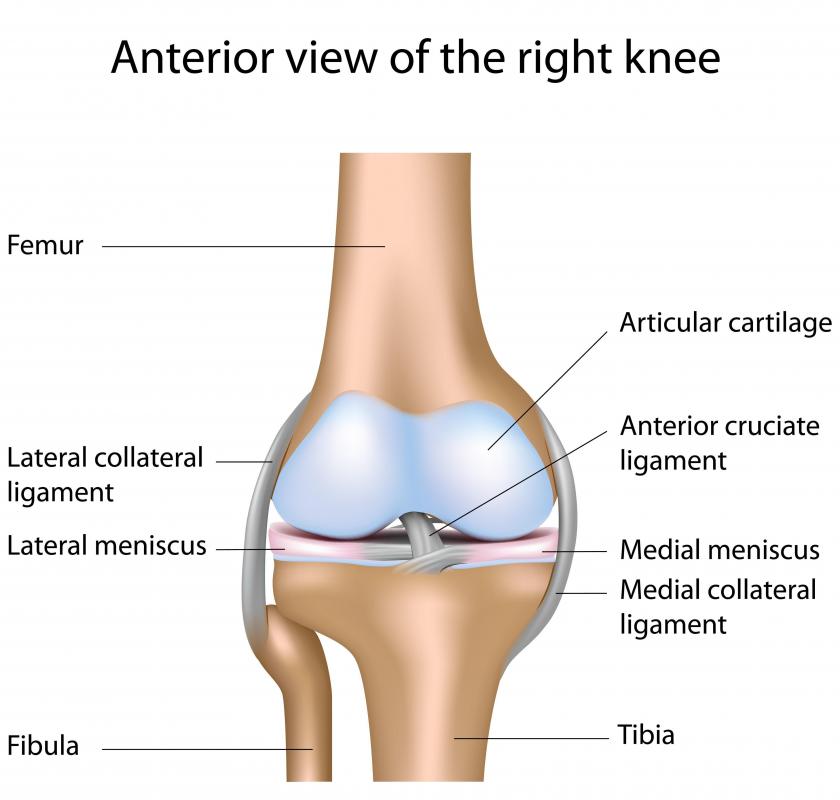At WiseGEEK, we're committed to delivering accurate, trustworthy information. Our expert-authored content is rigorously fact-checked and sourced from credible authorities. Discover how we uphold the highest standards in providing you with reliable knowledge.
How do I Treat an Aching Knee?
Treatment for an aching knee will vary according to the cause of the pain. If the ache occurs regularly, or is particularly intense, you may want to consider visiting a doctor to determine the cause of the problem. If the ache is minor, or if it is an isolated ache, the RICE treatment may work best. RICE stands for rest, ice, compression, and elevation. An aching knee can be a symptom of a larger problem, however, so if the ache persists for more than a day or two, or if pain worsens, seek medical attention immediately.
A knee ache can be caused by overuse of the joint, in which case inflammation of the tendons, known as tendinitis, can occur. Ligaments can also become slightly injured, as can the muscles near the knee. An aching knee is usually not a serious issue, but if pain worsens or if the joint becomes swollen, stiff, or immobile, the situation may be more severe. Treating minor aching knee injuries may be as simple as resting and allowing the swelling to go down. Icing the affected area can also help keep swelling to a minimum, thereby alleviating pain and speeding up healing time. Elevation promotes blood flow to the affected area, which in turn promotes healing.

Conditions such as arthritis may lead to an aching knee, and unfortunately there is no cure for this degenerative condition. A doctor may prescribe anti-inflammatory medication to keep inflammation to a minimum, but a sufferer of arthritis may be stuck with aching knees periodically. A regular exercise and stretching program can help slow the degenerative process of arthritis, and adequate rest can also help manage pain. Sometimes topical ointments can help relieve some of the pain and promote mobility in the aching knee as well.

Injuries are common causes of aching knee problems. Ligament sprains and muscle strains can cause knee pain, and treatment for these injuries include the RICE method. More severe muscle strains or ligament sprains will cause immobility of the joint, swelling, and intense pain. These are usually indications that the ligaments or muscles have ruptured, which means a surgery may be necessary to repair the damaged tissue. If intense pain occurs, see a doctor immediately to see if a ligament or muscle has ruptured.

A lack of exercise can also sometimes lead to aching knee problems. When muscles that connect near the knees are underused, they are weaker and therefore more likely to become tired quickly. When muscles tire, they tend to tighten, which can lead to discomfort. Exercising regularly and strengthening muscles can help prevent pain in the knees.
AS FEATURED ON:
AS FEATURED ON:
















Discuss this Article
Post your comments